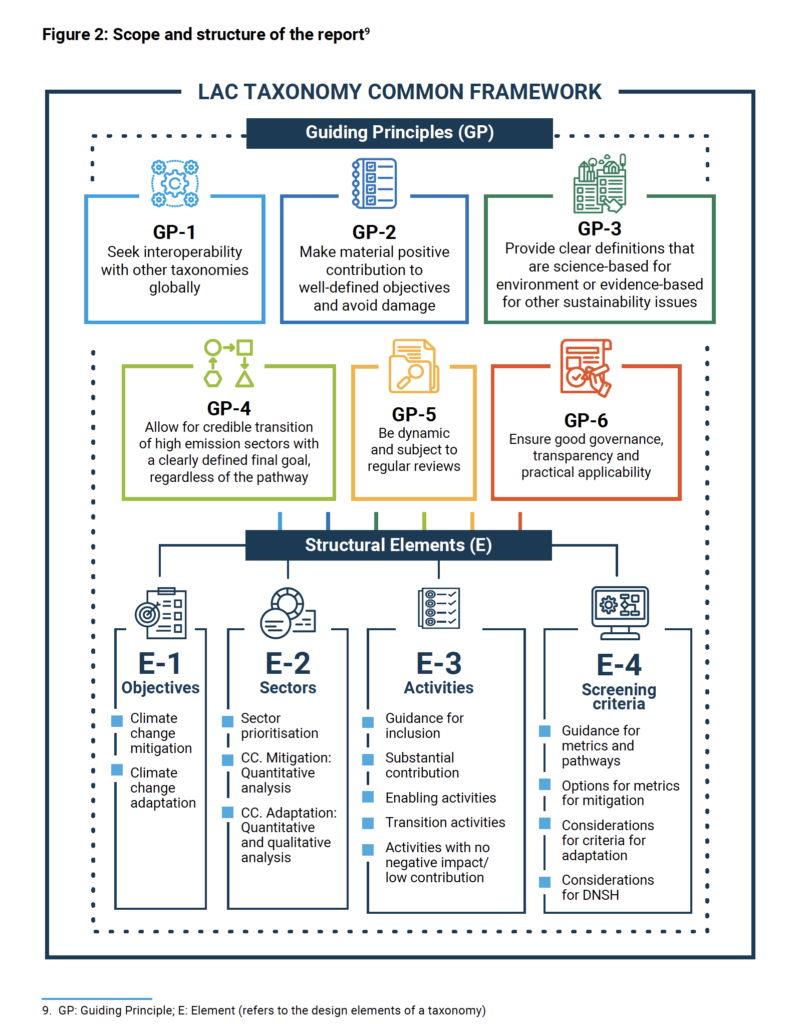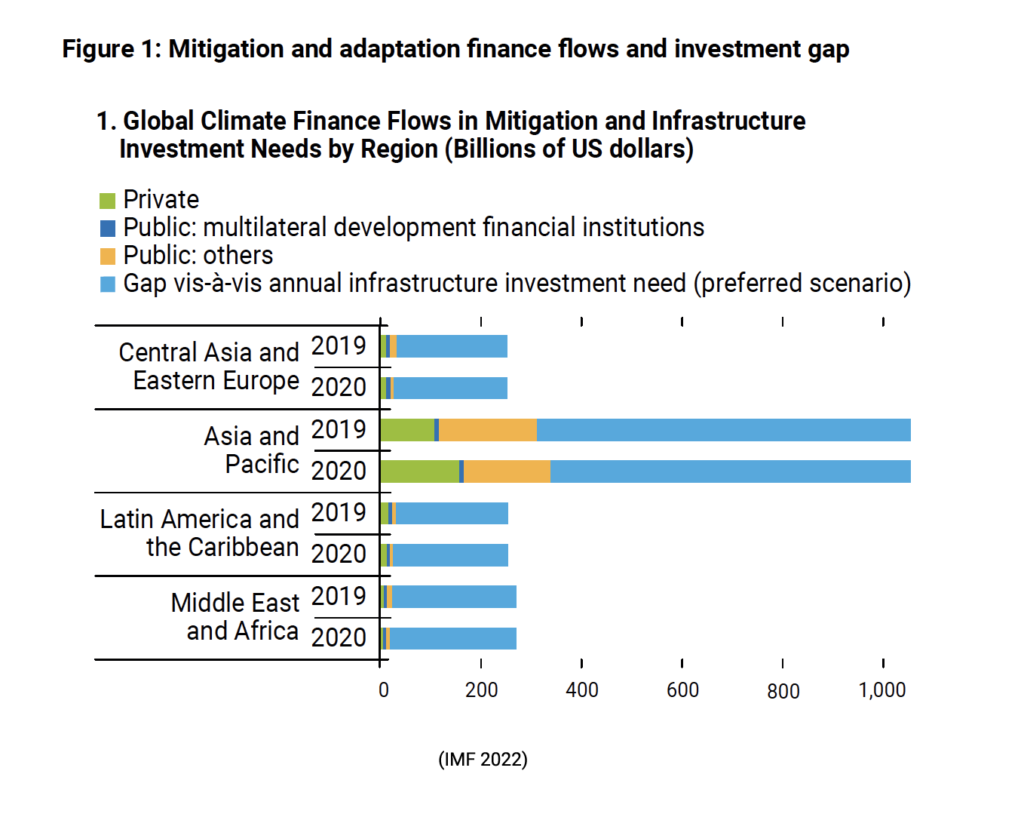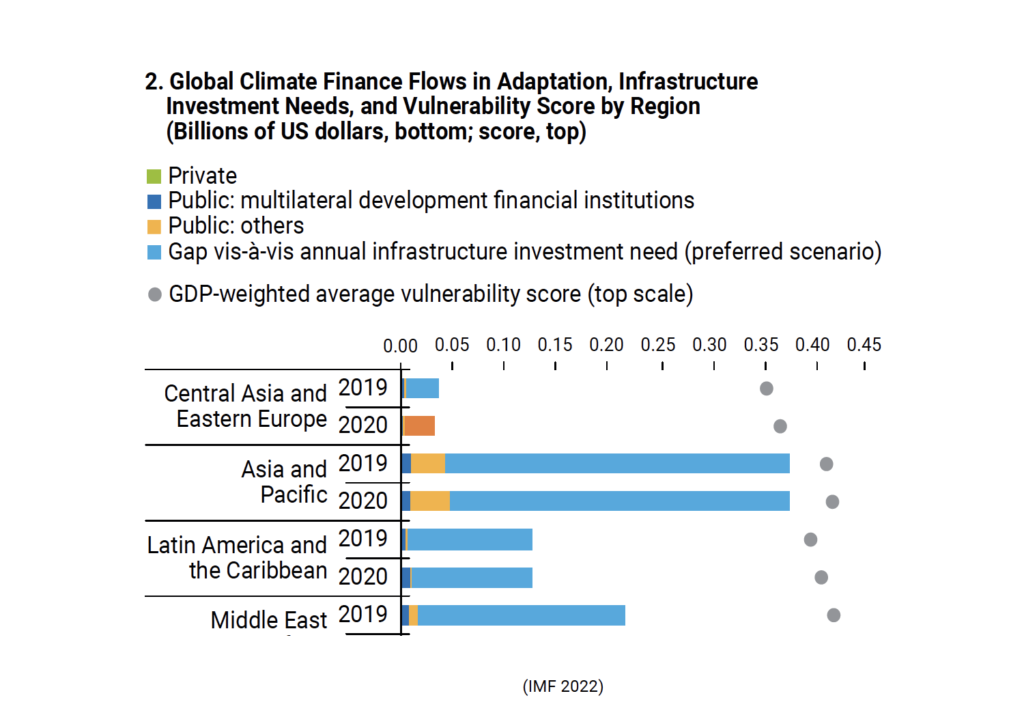The Common Framework of Sustainable Finance Taxonomies for Latin America and the Caribbean is a set of criteria that defines which economic activities can be considered sustainable. The framework was developed by the United Nations Development Programme (UNDP) and the United Nations Environment Programme Finance Initiative (UNEP FI) in collaboration with a wide range of stakeholders from the public and private sectors.
The framework is based on the EU’s Sustainable Finance Taxonomies, but it has been tailored to the specific needs of Latin America and the Caribbean. The framework covers six environmental objectives:
- Climate change mitigation
- Climate change adaptation
- Sustainable water use
- Circular economy
- Pollution prevention and control
- Biodiversity conservation and sustainable use

The framework is intended to help investors, businesses, and policymakers identify and invest in sustainable economic activities. It is also expected to help to promote the green transition in Latin America and the Caribbean.
The framework is still under development, but it is already being used by a number of organizations in the region. The UNDP and UNEP FI are working to promote the framework and to support its implementation.
Benefits of the Common Framework
The Common Framework of Sustainable Finance Taxonomies for Latin America and the Caribbean has a number of benefits, including:
- It provides a clear and consistent definition of what constitutes a sustainable economic activity. This can help to reduce greenwashing and ensure that investors are putting their money into truly sustainable projects.
- It helps to identify and invest in sustainable economic activities. The framework provides a list of activities that are considered to be sustainable, as well as a set of criteria that can be used to assess the sustainability of other activities. This can help investors to identify and invest in projects that are aligned with their environmental and social goals.
- It promotes the green transition in Latin America and the Caribbean. The framework can help to channel investment into sustainable projects, which can help to accelerate the green transition in the region.

Challenges to Implementation
The Common Framework of Sustainable Finance Taxonomies for Latin America and the Caribbean faces a number of challenges, including:
- The framework is still under development, and there is some uncertainty about how it will be implemented.
- The framework is complex, and it can be difficult for investors and businesses to understand and use.
- The framework is not mandatory, which means that there is no guarantee that investors and businesses will use it.

Ways to Overcome Challenges
The challenges to the implementation of the Common Framework can be overcome by:
- Continuing to develop the framework and making it more user-friendly.
- Providing training and support to investors and businesses on how to use the framework.
- Making the framework mandatory, or at least providing strong incentives for investors and businesses to use it.
Conclusion
The Common Framework of Sustainable Finance Taxonomies for Latin America and the Caribbean is an important tool for promoting sustainable development in the region. It is expected to help to attract investment in sustainable economic activities, create jobs, and protect the environment. However, the framework faces a number of challenges, and it is important to continue to develop and promote the framework in order to overcome these challenges.
In addition to the benefits and challenges mentioned above, the Common Framework of Sustainable Finance Taxonomies for Latin America and the Caribbean also has a number of other implications. For example, the framework could help to improve the transparency of financial markets, as it would provide investors with a clear understanding of which economic activities are considered to be sustainable. The framework could also help to reduce the risk of greenwashing, as it would make it more difficult for companies to claim that they are sustainable without providing evidence to support their claims.
Overall, the Common Framework of Sustainable Finance Taxonomies for Latin America and the Caribbean is a positive development that has the potential to make a significant contribution to sustainable development in the region. However, it is important to continue to develop and promote the framework in order to overcome the challenges that it faces.